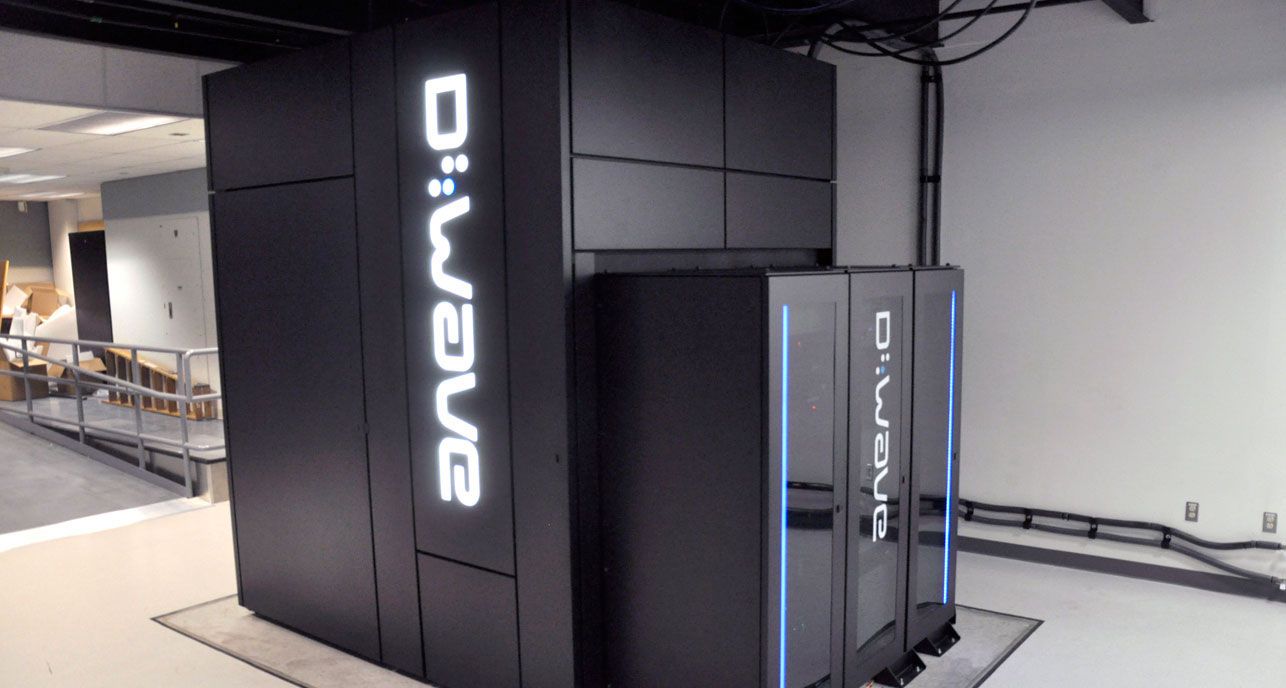
Get the latest international news and world events from around the world.


Google reportedly planning a ‘watershed’ quantum computing announcement for December 8
Interesting…
According to Steve Jurvetson, venture capitalist and board member at pioneer quantum computing company D-WAVE (as well as others, such as Tesla and SpaceX), Google has what may be a “watershed” quantum computing announcement scheduled for early next month. This comes as D-WAVE, which notably also holds the Mountain View company as a customer, has just sold a 1000+ Qubit 2X quantum computer to national security research institution Los Alamos…
It’s not exactly clear what this announcement will be (besides important for the future of computing), but Jurvetson says to “stay tuned” for more information coming on December 8th. This is the first we’ve heard of a December 8th date for a Google announcement, and considering its purported potential to be a turning point in computing, this could perhaps mean an actual event is in the cards.
Notably, Google earlier this year entered a new deal with NASA and D-WAVE to continue its research in quantum computing. D-WAVE’s press release at the time had this to say:

If Batman Owned A Private Jet, It’d Be The $700,000 Valkyrie
If the Spitfire is the classic car of a private plane collection then this Valkyrie is an Aston Martin. James Bond’s Aston Martin to be precise.
It’s the stunning new plane from Cobalt Aircraft and not only has the accolade of being of the most beautiful planes we’ve ever seen but being the fastest private plane in its category.

Uncovering the secret of turning back time
I had read about Singapore in genetic engineering way back in the 90’s. I think they were 1st or 2nd in making immortal skin cells at the time.
Singapore scientists have unravelled a mystery that could pave the way for turning back the clock on ageing.
A recent study led by Dr Ng Shyh Chang of the Genome Institute of Singapore at the Agency for Science, Technology and Research (A*Star) has found a gene in human egg cells that suppresses an enzyme causing cells to age.
This is the Tcl1 gene, and by increasing the protein it produces, the researchers found they could suppress the enzyme that causes mitochondria — the cells’ batteries — to age over time.

NASA Has Spotted An Explosion So Big It Could Spawn A New Universe
NASA has released a new image depicting the most “powerful eruption” to have occurred since the Big Bang.
The explosion, which took place ten years ago, is thought to be one of the biggest to happen since the Big Bang.
Although the eruption was spotted in 2005, the latest images exposes the full power of the event.

Hologram Pop Star Hatsune Miku “Announces” 2016 US and Canada Tour
Oh Japan, how I love your beautiful insanity. wink
If you’re a fan of virtual musicians with computer-generated bodies and voices, and you live in North America, then do I have news for you.
Hatsune Miku, Japan’s “virtual pop star,” is coming to the US and Canada next year for a seven-city, synth-filled tour—her first tour in this neck of the woods. Miku herself may be a digital illusion, but her unique impact on the music industry is very real.
Her bio describes her to her 2.5 million Facebook fans as “a virtual singer who can sing any song that anybody composes.” She debuted in 2007 as software called Vocaloid developed by Crypton Future Media, a Sapporo-based music technology company. Vocaloid software generates a human-sounding singing voice, but without any actual humans.

First genetically modified humans could exist within two years
Biotech company Editas Medicine is planning to start human trials to genetically edit genes and reverse blindness.

Cop pulls over Google self-driving car, finds no driver to ticket
No driver? No ticket.
That, at least, was the result when a police officer pulled over one of Google’s self-driving cars Thursday in Mountain View, California.
A 360-Degree Walk Through Times Square
Yesterday, Facebook introduced the ability to upload and watch 360-degree videos on all devices. Join tech editor Michael Nuñez and social media editor Jason Lederman for a 360-degree virtual walk through Times Square (video shot on a Ricoh Theta S).
Thumbnail: reynermedia/Flickr/CC-By-2.0 (https://www.flickr.com/photos/89228431@N06/11285512973/sizes/l/in/photostream/)

Genome Editing with CRISPR-Cas9
This animation depicts the CRISPR-Cas9 method for genome editing – a powerful new technology with many applications in biomedical research, including the potential to treat human genetic disease. Feng Zhang, a leader in the development of this technology, is a faculty member at MIT, an investigator at the McGovern Institute for Brain Research, and a core member of the Broad Institute. Further information can be found on Prof. Zhang’s website at http://zlab.mit.edu.
Images and footage courtesy of Sputnik Animation, the Broad Institute of MIT and Harvard, Justin Knight and pond5.